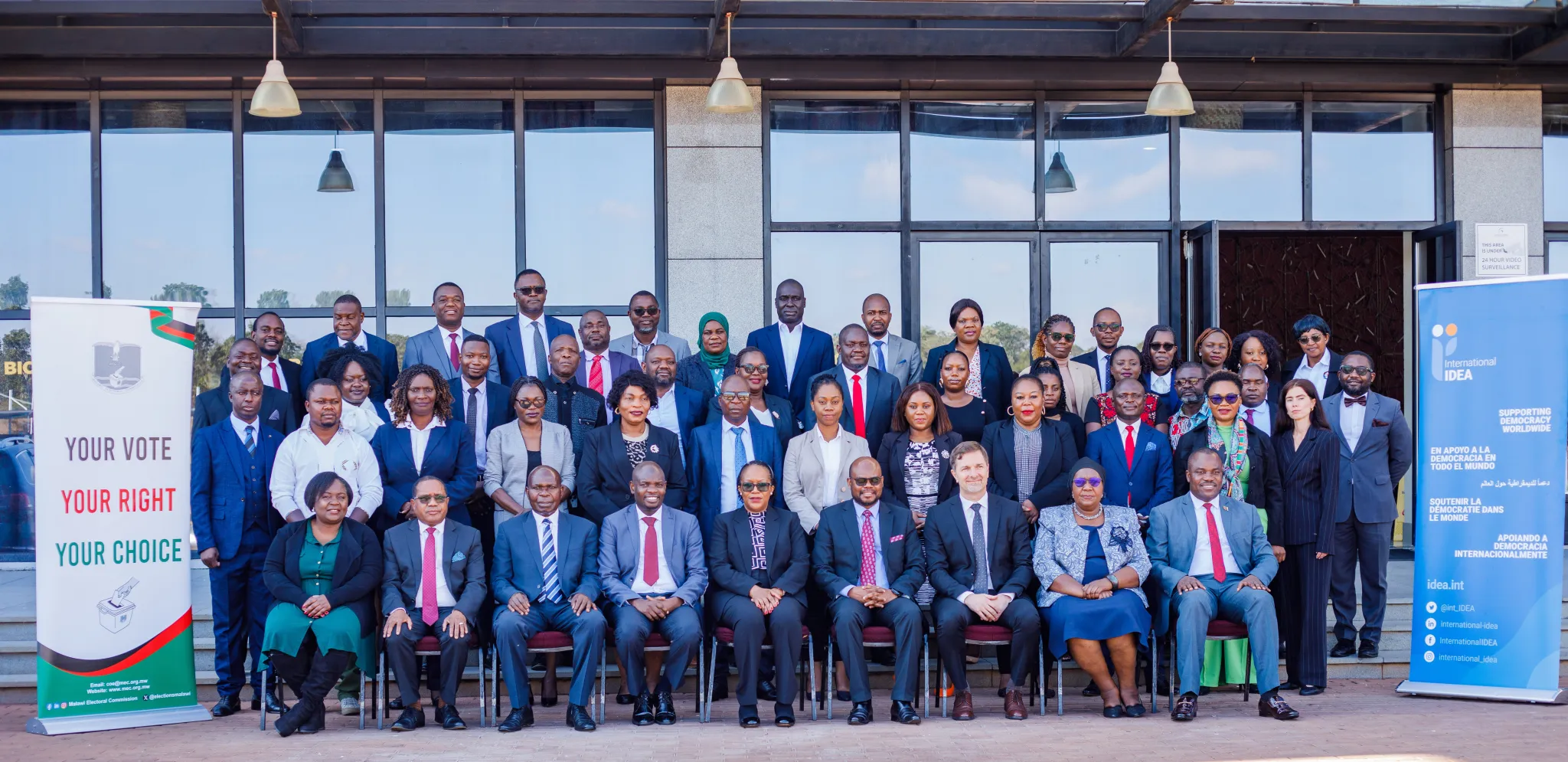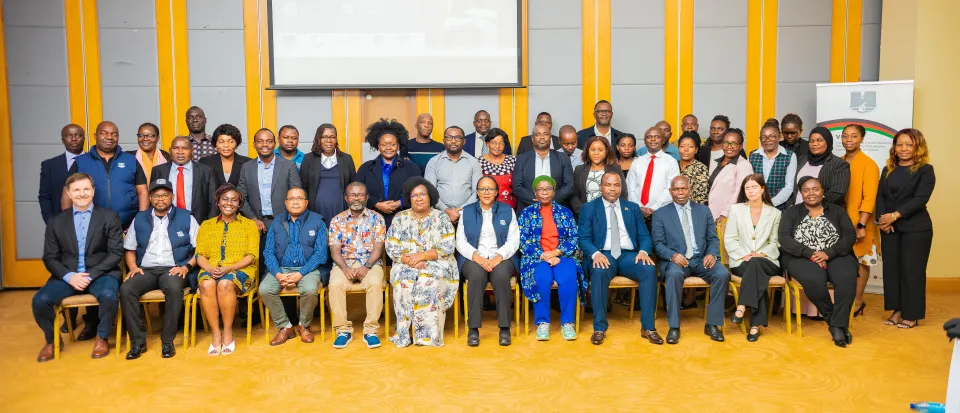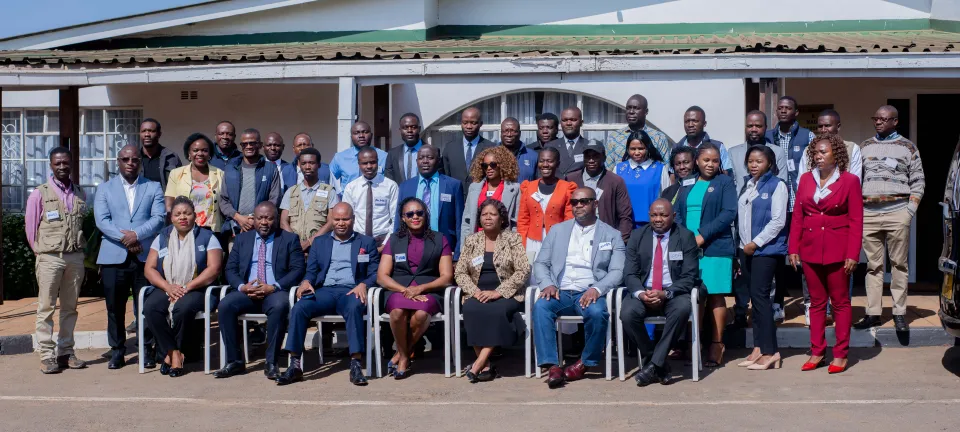Strengthening Malawi’s electoral preparedness ahead of 2025 general elections

From June to July 2025, International IDEA, in partnership with the African Union (AU) and the Common Market for Eastern and Southern Africa (COMESA), held a series of capacity-building workshops supported by the European Union-funded Strengthening Pan-African Capacities for Electoral Observation and Assistance (SPEC) project.
These interventions focused on three critical areas: electoral risk management, financial oversight, and nomination procedures—all aimed at strengthening MEC’s institutional preparedness.
Risk Management and Gender-Based Discrimination Workshop (16–18 June 2025)
The first event, held in June, was a Protecting Elections Workshop on electoral risk management and addressing gender-based discrimination and violence. MEC Commissioners and senior staff were trained to anticipate risks and adopt strategies to reduce their impact with a strong emphasis on gender-based threats.
Opening the workshop, MEC Chairperson Justice Annabel Mtalimanja emphasized the dangers of gender-based violence in discouraging women, youth, and marginalized groups from participating in elections. She reaffirmed MEC’s commitment to applying gender-sensitive practices in electoral management. She further noted MEC’s commitment to integrating gender-sensitive practices in recruitment, civic education, and conflict prevention.
Through risk-mapping exercises and conflict simulations, participants gained tools to improve coordination and crisis response during the election period. The training was part of a broader AU technical mission initiated after a pre-election assessment conducted earlier in March.
Internal Audit Training (22–23 July 2025)
In July, MEC staff, including internal auditors, civic educators, operations staff, and District Elections Officers (DEOs), took part in an Elections Internal Audit Workshop from 22 to 23 July 2025 in Lilongwe. The training highlighted the importance of robust financial controls in ensuring transparent elections.
MEC Deputy CEO Andrew Kamkwalala highlighted the importance of internal controls in ensuring transparent elections. Discussions covered operational challenges such as logistics and fuel shortages, while technical experts introduced practical tools for election audits and oversight. The workshop built on earlier sessions held since 2024 and reinforced the role of strong accountability systems in credible elections. Technical experts led sessions on developing a national election monitoring framework and enhancing audit traceability.
Training of Trainers for Constituency Store Clerks (26–30 July 2025)
The final workshop focused on a Training of Trainers (ToT) for constituency store clerks and the nomination process for the 2025 General Elections. The training assembled officers from key MEC departments—Electoral Services, ICT, Legal, and Security—to develop their understanding of the full nomination lifecycle.
MEC Director of Electoral Services, Hastings Bota, stressed the importance of mastering each procedural step, including nomination fee processing, form validation, and candidate verification. Trainers are expected to cascade this knowledge to Election Management Device (EMD) operators stationed at Constituency Tally Centres nationwide.
MEC also introduced an improved Nomination Management System designed to ensure accuracy, traceability, and compliance with legal standards. The system supports documentation integrity and allows for full auditability.
Conclusion
Together, these interventions mark an important milestone in Malawi’s electoral readiness. By addressing risks, strengthening financial accountability, and improving nomination procedures, MEC has demonstrated its determination to deliver credible, inclusive, and transparent elections.
Supported under the European Union-funded SPEC project, these initiatives reflect broader regional commitments to the African Charter on Democracy, Elections and Governance. They are expected not only to strengthen MEC’s institutional capacity but also to enhance public trust and contribute to peaceful and transparent outcomes in September 2025.






